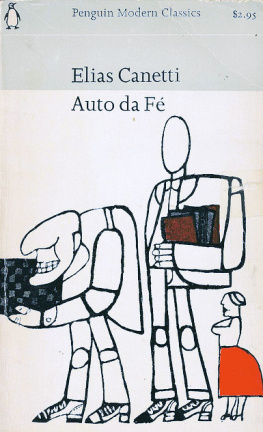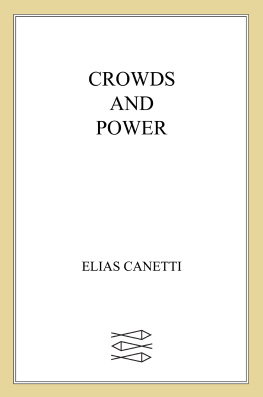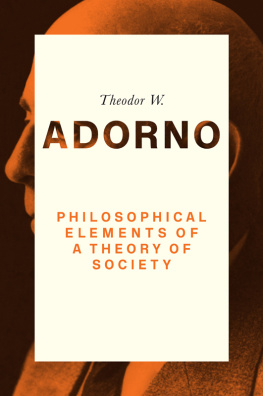Elias Canetti - Notes from Hampstead
Here you can read online Elias Canetti - Notes from Hampstead full text of the book (entire story) in english for free. Download pdf and epub, get meaning, cover and reviews about this ebook. publisher: Farrar, Straus and Giroux, genre: Art. Description of the work, (preface) as well as reviews are available. Best literature library LitArk.com created for fans of good reading and offers a wide selection of genres:
Romance novel
Science fiction
Adventure
Detective
Science
History
Home and family
Prose
Art
Politics
Computer
Non-fiction
Religion
Business
Children
Humor
Choose a favorite category and find really read worthwhile books. Enjoy immersion in the world of imagination, feel the emotions of the characters or learn something new for yourself, make an fascinating discovery.

- Book:Notes from Hampstead
- Author:
- Publisher:Farrar, Straus and Giroux
- Genre:
- Rating:3 / 5
- Favourites:Add to favourites
- Your mark:
- 60
- 1
- 2
- 3
- 4
- 5
Notes from Hampstead: summary, description and annotation
We offer to read an annotation, description, summary or preface (depends on what the author of the book "Notes from Hampstead" wrote himself). If you haven't found the necessary information about the book — write in the comments, we will try to find it.
Notes from Hampstead — read online for free the complete book (whole text) full work
Below is the text of the book, divided by pages. System saving the place of the last page read, allows you to conveniently read the book "Notes from Hampstead" online for free, without having to search again every time where you left off. Put a bookmark, and you can go to the page where you finished reading at any time.
Font size:
Interval:
Bookmark:


The author and publisher have provided this e-book to you for your personal use only. You may not make this e-book publicly available in any way. Copyright infringement is against the law. If you believe the copy of this e-book you are reading infringes on the authors copyright, please notify the publisher at: us.macmillanusa.com/piracy.
Slumbering in every human being lies an infinity of possibilities, which one must not arouse in vain. For it is terrible when the whole man resonates with echoes and echoes, none becoming a real voice.
I knew him back when he seemed to be made only of pretty little animals. Now grown like a weed, he has become a horses tail.
He takes credit daily for having had a father.
Speak to yourself, speakperhaps she will answer as you yourself.
He wavers uncertainly between his descendants and his forebears. Which are more reliable? Who offer him more?
Shallow religions: those we feel no fear behind.
To be sure, I was there; but sometimes when I read books about it, I manage to read myself away from there, and then I am quite desperate.
She is not stingy; she just cant stand people spending money on others.
Second meetings always ruin first impressions; should there be only first meetings?
He has settled himself in my territory but cannot stand the same sun shining through both our windows, so he burrows into the ground to hide.
I have as little faith in concepts that are clear as I do in those that are unclear: either can lead one into darkness.
Johann Georg Hamann
To travel without dulling the edge of your sense of people.
The petrifying effect that F. seems to have on his surroundings speaks for the sincerity of his nature. He is in fact that which he thinks he is only pretending to be. Everything he toucheswhether with his hands, his words, his breath, his gazeturns to stone. He does not need other people: he wants them to disappear. He does not even need posterity. For everything will revert to the stone he is made from.
He worships only this: hardness.
She wishes for a Jacobs ladder, so she can count her money in heaven.
The singers in the grave. Thy son liveth, and hath the woman within, and they are singing. We went to look upon his grave, and we heard them; he hath the woman within, and they are singing.
Modern Greek
She is concerned with my loss because she is facing one as well. Through my loss she prepares for her own. She hopes that one day our two losses will find each other.
He studies and studies and can forget nothing: a dunce of dunces.
He has to keep on reaching: the higher things wont leave him alone.
Sometimes he gets quietly drunk on thoughts he has secretly stored away, and his happiness is doubled because he knows he has hidden them so well.
This aroma that surrounds people we dont know.
He explains all laughter as the laughter of derision.
Above all he yearns for the people he has found most unbearable.
The rapidity of intellecteverything else we say about intellect is just an attempt to hide its absence. We live for these moments of rapidity that spring like artesian wells in the deserts of lethargy; it is for their sake alone that we live, inert and barren.
People say curious things about the dead and their wanderings. Its said, for example, that when one travels to faraway placeswhether to Ife or Dahomey or Ewe Landone meets them in the marketplace, people who died back home and have retreated here to avoid being recognized. If they see an acquaintance from home, they quickly slip away, making sure they are never seen again. Leo Frobenius, On the Road to Atlantis (from the Yoruba)
Voice-sick.
He describes things in exclamations, hes that natural.
No sooner does the mere possibility of success appear on the horizon, than he tries to escape. His mistrust of success has become so great that he wants only to want it, not to have it.
There they can switch their feet, and oh! the different ways theyre able to walk!
We can always find fault with the living whom we know well. But we are grateful to the dead for not prohibiting us our remembrance of them.
It is noted as a special virtue of these people that they dont include tomorrow when they count off the days.
In that country, everyone sees themselves when speaking to others, as if blind to all but their own images. Thus they are all very polite; they couldnt be more pleasant. Indeed, they are in a state of enthusiasm for everyone else, an enthusiasm only somewhat mitigated by their monotonous similarity. It is enchanting to see how they bow to everyone, when you know that they see themselves in everyone else.
As she molded a clay pot, a Pueblo Indian woman imitated continuously the resonant sound of a well-fired vessel, to ensure that her work came out right and didnt crack in the kiln.
I should like to contain everything within myself yet stay quite simple. That is hard. For I dont want to lose this variety, much as I wish to be simple.
The mystics nature is not mine; it seems to me the mystic sacrifices too much for his happiness.
I love to tell people who they really are. I am proud of my ability to instill in them a belief in themselves. I show them their own efforts. But I succeed only when I put myself into the effort. From my efforts their own take shape.
Today I got deep into Machiavelli. For the first time he really captivates me. I am reading him with coldness but little bitterness. It occurs to me that he studies power in the same way that I study crowds. He looks at his subject without preconceived notions; his ideas stem from his personal experience with the powerful and from his reading. One could saymutatis mutandisthe same of me. Like everyone else of our time, I have experienced crowds of all sorts, and with my incessant reading I try to gain an idea of what the crowds of the distant past were like. I have to read much more than he; his past is the classical period, mainly Rome, while mine is everything we have the least bit of knowledge about. But I think we read in similar ways, at once distracted and concentrated, sensing and joining related phenomena from everywhere. Concerning crowds, I have lost my earlier prejudices; for me, the crowd is neither good nor bad but simply is, and our current blindness about crowds I find unbearable. I would have a purer relationship to Machiavelli if I were not also interested in power; here my path crosses his in a complicated and intimate way. For me, power still is evil absolute; I can deal with it only as such. Sometimes my hatred of it slumbers, as when I read Machiavelli; but my slumber is light, and I enjoy waking from it.
I didnt find the powerful figures I wrote about on the broad main road. The more I came across their names, the harder they were to approach. I am suspicious of fame based on acts in the distant past, and most of all I am suspicious of success. When the works of the great are texts, I can examine them the way anyone else does. But to what test can we put the acts of long ago? There is only the test of peoples opinions about them, and these I dont ignore. But neither do I grant them honor or belief.
It all depends on this: with whom we confuse ourselves.
How ordinary a person becomes when we see him often; it is as if he meant to avenge himself for the inflated image we have of him.
Font size:
Interval:
Bookmark:
Similar books «Notes from Hampstead»
Look at similar books to Notes from Hampstead. We have selected literature similar in name and meaning in the hope of providing readers with more options to find new, interesting, not yet read works.
Discussion, reviews of the book Notes from Hampstead and just readers' own opinions. Leave your comments, write what you think about the work, its meaning or the main characters. Specify what exactly you liked and what you didn't like, and why you think so.








